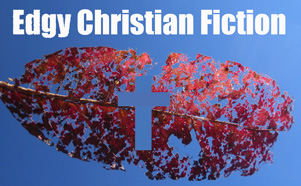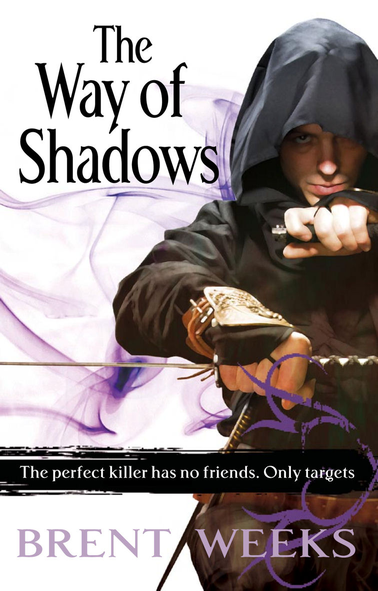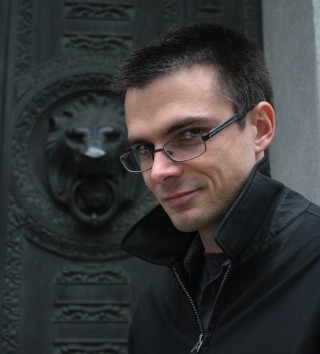Blog post by David N. Alderman
Have you noticed Christian fiction’s bad rap?
Personally, I’ve noticed a lack of exciting and/or realistic Christian fiction in today’s market and the impact it is having on the attitude of readers (both Christian and non-Christian) venturing out to give Christian fiction a chance. This is the main reason why I created The Crossover Alliance and the genre, Edgy Christian Speculative Fiction, under which I contain my Black Earth series. It is Christian fiction, but it contains elements and themes – violence, sexual themes, unhappy endings, cursing, magic, other worlds, aliens, rape, etc – missing from much of today’s typical Christian fiction.
Now, to start off, I’m not saying that Christian fiction HAS to have any one of these things to be good fiction. I’m also not saying that I include these elements in my own fiction simply to appease a particular demographic. The problem is that I see many authors crafting Christian fiction that veers so far away from these elements that they end up on the other side of the pendulum with corny, generic, watered-down ‘religious’ fiction.
I know one of the main problems is that many Christians believe that Christianity and any one of the elements listed above clash in such a way that there is no way for fictional entertainment to contain the both of them without our reality imploding from the very act. If the f-bomb is dropped, it can’t possibly be considered Christian fiction, right? If a woman is raped, if a villain wipes out a church camp in a spread of gunfire, if a character refuses the path of redemption by the end of the book, it can’t possibly be appropriate for Christian audiences or be publicly revealed as having been written by a Christian author. Right? Right?! Please, say yes so that you feed my insecurity issues about writing outside of the Christian box religion built for me! Say it!!!
Sorry, I’m growing a bit passionate about this topic. Aside from Christian romance – which is a different animal altogether – I’ve noticed, at least for me, that most Christian fiction falls into four categories:
The Ambush Novel – You have Christian fiction that is written for non-Christians specifically – a sermon in the guise of a ‘great’ and/or ‘epic’ fantasy, science fiction, or horror novel. When the reader gets deep into the story, they are hit with what is clearly a sermon preaching a clear message of repentance and the need to turn to Christ or there will be much burning in Hell. This leaves the reader dumping the agenda-driven book on the floor in disgust, wishing it wasn’t against their beliefs to burn books for being this way. People read FICTION books to be entertained, not preached to. Trying to poorly disguise a religious agenda in a story only to ambush the reader with it after they’ve invested much of their time in the characters and plot is silly and gives Christian fiction a bad reputation.
This isn’t to say that Christian fiction or mainstream fiction can’t have some sort of agenda, but it needs to be brought through the story naturally. Of course, in writing fiction, there’s always some sort of message we’re trying to get out to the world whether we are fully aware of it or not. Readers don’t need one that’s going to jab them in the eyes and pull the rug out from under them.
Christian Stories – I consider these books vanilla Christian novels. The Left Behind Series, Amish romance, The Shack. These are novels that don’t shy away from the Christian label. They might be great books, but you can tell they are written for the Christian market and aren’t necessarily natural reads for non-Christians.
Borderline Christian Stories – These are books written by authors such as Ted Dekker, Tosca Lee, and Stephen Lawhead. These are books that clearly or semi-subtly advertise themselves under the Christian fiction banner but have captivating stories that can appeal to Christians and even non-Christians.
Secular Fiction Written By Christians – These books hold Christian themes that are not plainly obvious. These themes are found threaded throughout a book full of edgy (sometimes Rated-R) content and themes. I applaud books with this quality because they have the ability to entertain Christians and non-Christians alike. Brent Weeks is a great ‘big-name’ example of an author who exemplifies this type of fiction. Read the Night Angel trilogy. Now. In fact, my good friend Paeter Frandsen did an audio interview with Brent Weeks where Brent speaks about his clear Christian faith. Check it out here.
The stigma that I see going around is that the term ‘Christian fiction’ just isn’t well-accepted in non-Christian circles. I know some of it is because some people are just genuinely not interested in religious fiction of any nature. But I also know that some of the reason Christian fiction is avoided is because it is stereotyped as being preachy, boring, corny or any other number of lame descriptions. And it’s a shame, because not all fiction with Christian themes falls into these descriptions. But the ones that do leave such a sour taste in the mouth of readers that it’s hard to rise above this generalized idea of what Christian fiction entails.
I guess some of it boils down to who you’re writing for. If you’re only writing for Christians who only read PG-rated fiction and you want to approach that demographic specifically, then by all means keep your fiction clean cut and relevant to Christians. The problem is, what is relevant to Christians as opposed to what is relevant to non-Christians? Don’t we all struggle with the same things in this life? The only difference is that Christians have accepted Christ’s redemption on the cross. But we all – Christian and non-Christian alike – struggle with the elements of evil in this world: violence, death, suicide, drug addiction, alcoholism, abuse, jealousy. We are all sinners, so is it safe to assume that a Christian fiction story that contains the struggles of this world in a realistic light can be relevant to both non-Christians and Christians?
This isn’t by any means an argument to conform to the world in order to appeal to it, but remember that as a Christian, we are ‘in’ the world. And to write fiction that mirrors the world we live in – with all of its vices – appeals to a larger audience of readers because it is believable and relatable fiction. And I think it’s a step that some of us Christian writers may be called to take. I assure you, not everyone is called to write fiction like this, but those of us who want to take a step outside the boundaries that the Christian market has set up should do so now. And remember, it’s not simply the act of wrapping a sermon in an f-bomb burrito, but it’s more along the lines of telling a great and entertaining story and threading themes of redemption, holiness, and forgiveness throughout.
So maybe I’ll propose a fifth category – edgy Christian speculative fiction. It does just what it says it does. It crosses the lines of secular and Christian fiction and brings about an exciting and Christ-centered genre that we definitely need more of. My work falls into this genre, as does a multitude of other authors, including Mark Carver, Jess Hanna, Nathan James Norman, and Patrick Todoroff.
Right now, a Kickstarter campaign is running to raise funds for this publishing company, one specializing in this unique genre. We would love it if you would pledge to our campaign, both to help us as a publishing company, and to spread the validity of this type of fiction.
David N. Alderman is an indie author of two speculative fiction series—Black Earth and Expired Reality. You can find all of David’s work at www.davidnalderman.com. He is also the founder of The Crossover Alliance (www.thecrossoveralliance.com), a publishing company specializing in edgy Christian speculative fiction. He participates in National Novel Writing Month (www.nanowrimo.org) each year. When he’s not writing or spending time with family, you can find David gaming on any number of different consoles.







You got into my head with this commentary because the same caliber of thoughts and gripes swirl around in my gray matter. One of the lines that tugged at me was your exhortation to “those of us who want to take a step outside the boundaries that the Christian market has set up.” If so, then we “should do so now.” That’s me. My novel about God’s vision for sexual passion in a Christian couple’s marriage is Exhibit A.
That calling is what I’ve felt as writer every day for years. The very basis of edgy Christian fiction is “fiction that mirrors the world we live in – with all its vices . . .” (within the conditions you cited). My stories (and some nonfiction) are intended, like yours, to reach a larger audience of readers beyond Christians.
When did I know I feel this calling? As an eager new disciple back in the 1980s, I lived for ten years in Hollywood writing screenplays. I’d grown up in a secular home, attended public high school, and earned a 4-year degree from a state university — all without “religion” or church or prayer. Struggling to live by my own wits finally led to dead ends in every area of my life, and at last I cried out desperately to the Lord. So I knew the pain and futility of living without Jesus.
One day I attended my first Christian writers’ conference. I spoke to seasoned professionals about reaching “the lost.” While a good number approved in theory, most reacted as though writing for secular readers was idealistic, even impractical. The impression I got was, “What we publish helps believers lead more Christ-like lives and encourages their faith.” My response, “But what about reaching the millions who are hurting and don’t know about Christ’s love and salvation?” met with polite smiles and genial pats on the shoulder.
From that moment on, I felt a strong calling. And your piece, brother, suggests you’ve been following a strong calling too. We’re in this together.
I am a very new author who has released two new novels this past summer. From reading your article I feel they can be best be described as edgy Christian speculative fiction.
My novels The Adulteress and Veronica are the first two novels in a series entitled Women who met Jesus based on New Testament women.
These books are Christ centered yet edgy.
What are the best online resources to help with promoting my books?